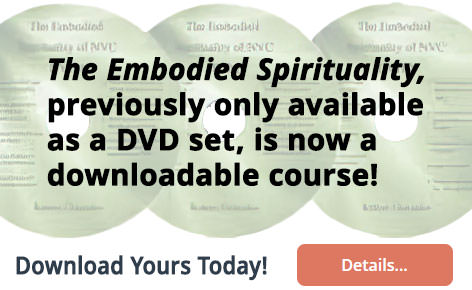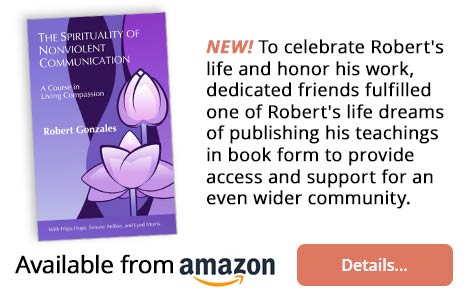

Welcome to the Robert Gonzales Training Legacy. Here you can learn more about Robert and the powerful teachings he dedicated his life to. NVC Academy is proud to house and share with you the complete body of his life's work. We invite you to explore, learn, and help keep his legacy alive!
Robert's passion was in the spirituality of the Nonviolent Communication (NVC) process. He saw NVC both as a process that helps people connect more authentically with themselves and others, and as a spiritual practice and way of living. The worldwide NVC community mourned when Robert died in 2021. He left behind a legacy of work that emerged from a lifetime of inquiry into the intersection between spirituality and human communication. More about Robert.
Audio
6 - 8 hours
Join CNVC Certified Trainer Eric Bowers in journeying through the world of Interpersonal Neurobiology (IPNB) as he expands on the theories and tools from his book Meet Me In Hard-to-Love Places: The Heart and Science of Relationship Success. You'll discover why IPNB and NVC complement each other so well, especially in the powerful practice of Somatic-Based Resonant Empathy.
Details...Article
4 - 6 minutes
The more we can stay present with our hurt, and own our interpretations, we are more likely to express what's important to us without blame and also to become resilient. From there, the listener can have more space to offer their full presence and empathy. Read on for more.
Details...Article
7 - 10 minutes
People find confrontation inspirational when done with full compassion and intention to support. To do this, transform your own judgments or distress, come with useful content plus spot-on timing, and the best interests of the receiver in mind. Read on for questions you can ask yourself in preparation for this, and more.
Details...Trainer Tip
1 - 2 minutes
Trainer Tip: Sometimes we need to empathize with a person before he can hear our anger. Consider that all anger is an expression of an unmet need. If we focus on the need, rather than the actions, we are more likely to connect compassionately with other people. Be aware of opportunities to empathize with someone’s anger today.
Details...Article
8-12 minutes
Unhook from a reactive dynamic, by staying with your needs and requests, and release attachment to outcome. Start by shifting your attention from the other person to get clear on what's true for you. Read on for strategies to transform reactivity, possible boundary setting behaviors, typical signs of escalation, and more.
Details...Article
10 - 15 minutes
The “mind” or our “ego” are often depicted as a static entity, an unchangable part of human nature, and as obstacles or negative parts of ourselves to overcome. This view creates maligning, a split within us, while remaining invisibly part and parcel of authority-based societies --the dominant culture and institutions into which we are born. Instead, I want to advocate an integration of reason and emotion, mind and heart, plus self and others.
Details...Article
3 - 5 minutes
One clue we have trauma is when we respond in a way we don't want (eg. being reactive, self sabotaging, etc). Even when we have high level NVC skills our trauma-related mechanisms can activate, and we can lose access to well honed NVC skills. Read on for approaches that involve healing trauma, and approaches that involve managing the effects of trauma and preventing additional trauma.
Details...Trainer Tip
1 - 2 minutes
Trainer Tip: Acknowledge that the person’s life has been affected by your actions and enjoy the feeling of warmth you have when you contribute to a life. Try verbally acknowledging how you feel when you hear that you have enhanced her life.
Details...Article
3-5 minutes
Reducing overwhelm requires you to reconnect with your authentic choice, be present and compassionate with what's happening, heal trauma, and interrupt the trauma response. Read on for ways that may help you reconnect with your choice, presence and more on trauma.
Details...Trainer Tip
1 - 2 minutes
Trainer Tip: List specific things that would signify love to you. Based on who the other person is and who you are, how could your need for love be met? Being specific is important. General statements, such as “I just want you to love me” or “I would like you to be more attentive and listen to me more” won’t work. (S)he may already think (s)he is attentive. What would being attentive look like to you? And how will he know if (s)he’s been attentive enough?
Details...

